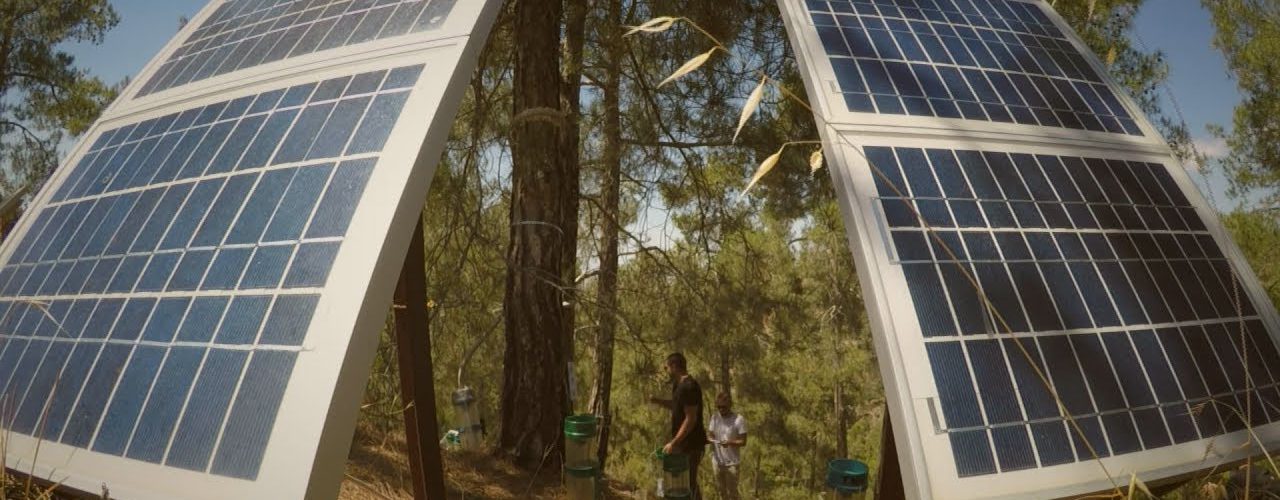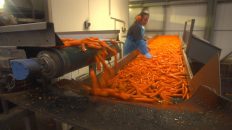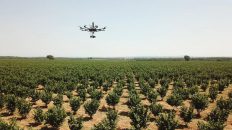Along with the rest of the planet, Europe is bracing for the impacts of climate change. Some areas are facing a range of risks, ranging from droughts to floods, but how well do we understand what to expect and how to respond?
For euronews, Denis Loctier visits Cyprus and Germany, where researchers are looking for answers.
Nicosia, Cyprus
In Nicosia, the rains that turn one riverbed into a river are becoming less frequent, and more intense. This accelerates soil erosion, bringing more sediment. A check dam was built in the area to slow the river down so that water could soak into the ground, but increasing sediment is a hindrance.
Adriana Bruggeman, Researcher in hydrology and water management at the Cyprus Institute, tells euronews that:
“The people who live here rely on ground water, both for domestic supply, household use, and for irrigation. With climate change, we will get less and less water flowing in, so we want to understand how much water can be stored here.”
The concern is that, in this semi-arid country, more and more water will evaporate before reaching underground aquifers. Researchers take regular soil samples to learn how quickly, or how slowly, the river water can pass through the growing layer of dense sediment.
Corrado Camera, Reseacher in hydrology and earth sciences at the Cyprus Institute, explains the work of collecting samples:
“Inside this cylinder, we have a known quantity of soil. We will completely dry this sample, weigh it, and thus determine the density of the soil.”
To get a better idea of water circulation, researchers take other measurements too, and at one forest station researchers study the effect had by trees. The tree canopy traps some of the rain water causing it to evaporate before reaching the ground, whilst the root system pumps underground water upwards for the tree to grow, in a process known as transpiration.
Marinos Eliades, Researcher in ecohydrology at the Cyprus Institute explains what he is doing:
“This sensor has three prongs which allow it to estimate the velocity of water passing through the trunks. This indicates how much ground water the trees absorb.”
The Cyprus study helps local agriculture to adapt to changes in water availability, for example, by suggesting more water-efficient crops.
That is just one angle of this large European research project studying climate-related water issues.”
Mülheim, Germany
In Mülheim, Germany, one million inhabitants depend on a system of water reservoirs which needs to remain balanced.
Here, stronger summer rains increase the risk of flash floods. Researchers use meteorological data, along with their measurements of water flows on the surface and within the soil, to better understand changes in the water cycle.
Marc Scheibel, Researcher in water resource and flood risk management, Wupperverband, tells euronews:
“What we’re already experiencing is a shift in rainfall: now sometimes we have less rain in the winter — normally winter floods arrive in January or February — now sometimes they come later, in March, for instance. And there are more concentrated flash floods in the summer. This means that the water is not there at the right time, when we need it: so either there’s not enough drinking water or there’s too much water when there’s a flood.”
The BINGO project, studying test sites in six countries, aims to come up with a detailed ten-year forecast of climate change effects in Europe, including the impact on agriculture, industry, tourism and other sectors of the economy.
Rafaela Matos, BINGO project coordinator, and researcher in hydraulics and environment at LNEC, says:
“This research will help us to anticipate the influence of climate change on our environment — whether that concerns flooding zones or drought-prone areas. And to respond accordingly, with appropriate infrastructure solutions and with necessary changes in people’s environmental behaviour.”





